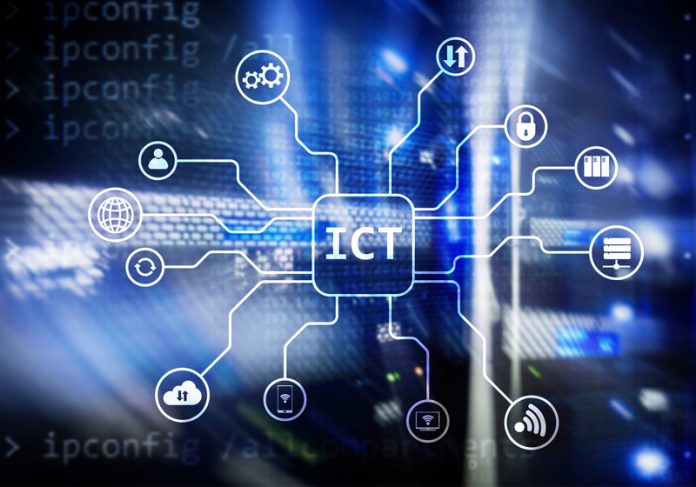Andrus Ansip has been Vice-President of the European Commission in charge of Digital Single Market since 2014 and here, we learn something of his ambition to make Europe a world leader in information and communication technology (ICT)
Andrus Ansip has been Vice-President of the European Commission in charge of Digital Single Market since 2014.
Andrus Ansip, a former Prime Minister of Estonia, is responsible for leading the Commission’s efforts to remove the regulatory barriers currently separating 28 national markets to help make Europe a world leader in information and communication technology. It is estimated that this could contribute as much as €415 billion to the European Union’s (EU) economy and help create hundreds of thousands of new jobs.
The ambitions of the Digital Single Market go beyond Europe’s borders to encouraging global cooperation on a digital future, from working together to advance international data economies and converging standards to keep the internet open through to fighting cyber risks and ensuring that data flows freely between regions, countries and continents.
In October 2018, Ansip told the Transatlantic Digital Economy conference organised by the American Chamber of Commerce to the EU: “We see data protection as a condition for stable, secure and competitive global commercial flows. We also see it as a fundamental right.”
There have been concerns in the U.S. that the EU’s General Data Protection Regulation (GDPR) could hinder commercial flows and innovation because of
high compliance costs. However, Ansip said, the EU set up a special communication channel with U.S. authorities about GDPR implementation to identify and resolve issues before they became major problems.
He added that while GDPR is new, there is a lot of continuity with previous EU rules, which had been in place for more than 20 years and have shaped EU-U.S. relations in data protection.
“In addition, many of the changes will actually help foreign operators – by cutting compliance costs as well as red tape,” Ansip said.
“Take the one-stop-shop for foreign operators that are established in the EU and will deal with only one authority for all their processing operations in the EU.”
Cybersecurity
Data protection is just one branch of cybersecurity, something that is at the top of the EU’s digital agenda. In December 2018, Ansip addressed the Cyber Security Conference in Vienna outlining Europe’s progress on cybersecurity and the need for a coordinated approach to tackling what is an ever-evolving threat.
“Last year, 80% of European companies fell victim to at least one cybersecurity incident. In some EU countries, half of all crimes committed are cybercrimes,” he said. “These attacks are booming as our societies and economies turn more digital, more dependent on the
internet and global connectivity.
“They undermine trust in the digital economy and wider online environment. They cost the EU economy many hundreds of billions of euros. And they are increasingly combined with disinformation as a means to undermine our democracies.
“This is something no country can afford to ignore: politically or economically.”
Hackers do not respect borders but the capacity of different EU countries to respond to attacks varies significantly.
As part of the Digital Single Market, the EU is working on legislation to bolster cybersecurity infrastructure and collective resilience.
“Europe needs to invest more in cyber as a matter of urgency. We are already pooling more EU and national funding for cybersecurity research, innovation and industrial activities,” Ansip said.
“Equally important is a strong commitment from each country to improve national cyber-readiness and capabilities… This is a primary objective of the Directive on security of network and information systems – the NIS Directive. We are slowly getting there.”
There is, however, still a long way to go – only 20 countries have fully implemented the directive Elsewhere, the EU is pushing ahead with the Cybersecurity Act, which aims to create a certification for ICT products and services.
“This will strengthen trust and confidence in the online environment, hopefully beyond Europe as well. It will stimulate ‘security by design’ and make sure that these products and services are technically compatible between EU countries,” Ansip said.
To keep pace with advances in technology, the Commission has proposed more than €2 billion over the EU’s next long-term budget period to set up a network of cybersecurity competence centres.
AI & robotics
Emerging technologies such as artificial intelligence (AI) are set to be a priority in 2019.
“Along with much-needed investment, especially in research and development, Europe places a focus on social, economic, ethical and legal issues,” Ansip told the Transatlantic Digital Economy conference.
“In the short term, we are working on ethical guidelines for AI that should be presented in spring 2019. We are also working with international experts to draw up a coordinated EU plan for AI development and deployment.”
The Commission has also long been aware of the growing importance of robotics, setting up the world’s largest civilian robotics programme – the public-private partnership for robotics in Europe (SPARC) – in 2013 with up to €700 million of EU funding for 2014-2020
bolstered by an extra €2.1 billion of industry investment. But just as important as supporting the development of AI and robotics is ensuring the digitisation does not create “winners” and “losers”. The EU has several schemes to help people develop the right digital skills, as well as re-skilling and up-skilling.
“The evolving demand for digital skills in industry also requires companies to get involved. However, they do not always want to invest in training employees to keep up with new processes. I think this is an error. And the best companies do invest in their workers, heavily and systematically,” Ansip wrote in a 2017 blog.
“We should not be afraid of technology – or of new technologies. Together, we can make sure that they work for everyone.”
https://ec.europa.eu/commission/commissioners/2014-2019/ansip_en
Open Access Government
editorial@openaccessgovernment.org
www.openaccessgovernment.org
www.twitter.com/OpenAccessGov











